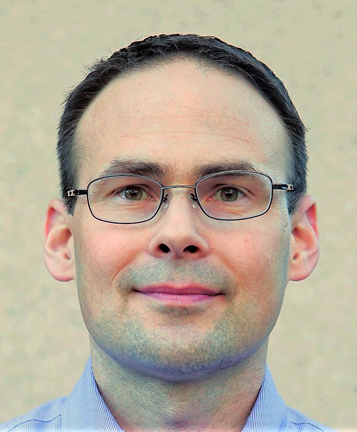
Matt Novak
For this installment of Senior Member Insights, we talk with Matt Novak. Since beginning his graduate study in optical sciences in 1995, Matt has focused on optical system design, lens design and optical engineering for a range of applications. In addition to serving as a staff member in both government and academic organizations, he has held individual contributor and leadership roles in private commercial businesses, including his own successful consulting business.
Most recently, Matt has joined Synopsys Inc. as part of the Synopsys Optical Solutions Group (OSG). In his role as senior staff customer applications engineer, he supports the needs of technical users of the firm’s CODE V optical-design software for imaging system optimization and analysis.
Matt enjoys working to solve design challenges in a range of optical engineering applications. He looks forward to contributing to the creation of new design tools for tomorrow’s optical system innovations as part of the Synopsys team.
What first interested you in pursuing science?
I’ve been interested in science ever since I was young. I always wanted to understand how things worked. I wanted to know how an airplane could fly, why a baseball would curve when I threw it a certain way, or how a rainbow formed in the sky (or from the spraying water of the garden hose!). This curiosity led me to study physics in college. From there, I became very interested in optical sciences.
Have you encountered a period where you have been discouraged in your pursuit of science? If so, how did you persevere?
When I’ve been discouraged in the past, I have paused to take time for my own well-being and health, getting better rest and coming back the next day to look at those challenges in a new light.
Do you have any advice for dealing with a particularly challenging colleague or supervisor?
I would suggest that someone facing a challenge like this should focus on being professional. Keep your comments framed in a positive way (or else keep them to yourself). It is important to focus on solving the problems which are important for your work and/or your business. If possible, deal with challenges you have with someone by talking together with them directly. If that doesn’t work, and the colleague or supervisor is so challenging to deal with that it harms your ability to work, then it is time to elevate the situation to a higher level manager or to the human-resources department in the organization.
What professional resources do you rely on to stay active and engaged with your field, and how has networking changed for you since you first began your career?
Optical Society meetings and other professional conferences are a great way to stay connected and understand new developments in the field. LinkedIn has also been useful as a networking tool. However, it is important to keep in mind that personal relationships are the key to successful networking. Most important, try to remember to support others in your network, too, by offering your help when you are able.
What tips do you have for effective collaboration in your field?
Remember that personal relationships are always at the root of successful collaboration. Trust and cooperation, hearing ideas which may seem strange or contrary to your own, and allowing new and different ideas to be part of the conversation are great ways to arrive at new and improved solutions.
What is one piece of advice that you wish you were given as a student/early in your career?
Remember to consider that “things” generally work as “a system”. In other words, try to remember that there are always many inputs behind the creation of an output. There are not only technical inputs, there are commercial concerns, market needs, and societal inputs, too! It is important to remember this when deciding how to approach a specific task or project within your work.
What have you learned by being a mentor to others, and what have you learned from mentors who helped shepherd your career?
By mentoring others, I have been constantly reminded that I can ALWAYS learn from others. My early mentors in optics were great at hands-on, practical optics as well as optical design. I was very fortunate to learn from them “on the job” after my more formal optics education was complete. I also learned from those same mentors that one should not stop learning, just because formal education has ended. Coursework is just one element in the toolkit you will need in creating solutions to problems in your work!
What habits do you frequently rely on that help you to succeed?
I eat healthy foods (well, mostly!), move regularly for exercise and mobility and sleep adequately to enable my mind to be fresh each day. I embrace the “love of wisdom” aspect of what it means to have a Ph.D. degree. I stay curious and work to sharpen my technical skills and to learn “outside my field”—reading on economics and business, for example. When facing a challenging or difficult task, I remember I am part of a team and ask for their support!
At this point in your career, what are you most looking forward to next?
I’m very excited to be part of a team developing new optical design tools to solve important challenges in the future field of optics and optical engineering. I look forward to supporting younger engineers through mentoring opportunities, too.
If you weren’t in the sciences, what would be your dream career?
I would enjoy teaching the economics and philosophy of liberty, from the viewpoint of purposeful human action (What is that? Just ask Google!). By keeping freedom and non-aggression in mind, we can celebrate our diversity as individuals, better understand different cultures, and make the world a better place!
